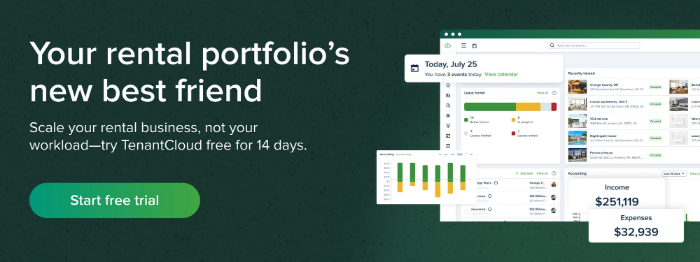TL;DR
Background checks reveal criminal records, rental history, credit reports, employment details, and identity verification information about prospective tenants. They help landlords make informed decisions while ensuring legal compliance and community safety.
The average eviction costs landlords $39,998 (over £30,000) when factoring in legal fees, missed rent, and property damage. Yet approximately 29% of rental applications contain fraudulent information since COVID-19—fabricated employment, inflated income, or hidden rental histories that put your investment at risk.
Whether you're a DIY landlord with a single property or a property manager overseeing dozens of units, understanding what a background check shows is essential for protecting your investment and finding reliable tenants.
What Does a Background Check Show?
A background check examines a prospective tenant's history to verify their identity, financial stability, and rental behavior. Here's what typically appears:
- Identity Verification: Confirms the applicant is who they claim to be through social security number validation, address history, and government-issued identification
- Criminal Records: Reveals felony and misdemeanor convictions, pending charges, and sex offender registry status to assess community safety risks
- Credit History: Shows payment patterns, outstanding debts, bankruptcies, and collection accounts that predict rent payment reliability
- Employment and Income: Verifies current employment status, job stability, and income level to confirm the tenant can afford rent
- Rental History: Uncovers past evictions, rent payment patterns, property care, and landlord references that predict future tenancy behavior
The information can vary depending on your screening policies and local regulations. You could also ask questions to potential renters to help you choose the best applicant. A basic background check might only verify identity and criminal history, while comprehensive screenings examine all five areas above.
Why Do Landlords Need Background Checks?
Background checks serve multiple critical purposes:
- Verify honesty: Avoid renting to someone who exaggerates income or fabricates employment
- Predict payment reliability: Credit history and employment indicate consistent rent payments
- Protect property value: Criminal and rental history help identify property damage risks
- Community safety: Screening creates safer environments for other tenants
- Legal protection: Documented screening processes defend against discrimination claims
Now, let’s break down each of the checks in a little more detail.
Identity Verification: Confirming Your Applicant Is Who They Claim
Identity verification is the foundation of any reliable background check, protecting landlords from fraud and ensuring accurate record matching.
Social Security Number Verification
Social security verification authenticates whether someone's SSN is valid and aligns with their identity. An SSN trace reveals the name associated with the number, date issued, state of issuance, and whether it's been reported as fraudulent.
This catches identity theft attempts and ensures subsequent background searches pull records for the correct individual.
Address History Verification
Past residences provide a timeline based on addresses used for credit applications and utilities. Address history:
- Determines which jurisdictions to search for criminal records and eviction history
- Confirms stability and consistency in residential history
- Identifies gaps or inconsistencies warranting investigation
- Helps verify rental history references align with actual residences
Address verification typically covers seven years. Frequent moves might indicate instability, while consistent long-term residences often signal reliable tenants.
Basic Information Confirmation
Beyond SSN and address, identity checks confirm full legal name and aliases, date of birth, current contact information, and valid government-issued identification. This prevents applicants from assuming false identities or hiding problematic histories.
Criminal Background Check: What Criminal Records Appear?
A criminal background check reveals your prospective tenant's history of criminal offenses—critical information for maintaining safe rental communities.
What Shows Up on Criminal Searches
- Felony convictions: Serious offenses like theft, assault, or drug trafficking
- Misdemeanor convictions: Less severe crimes, including DUIs or minor theft
- Pending charges: Active cases working through the courts
- Sex offender registry: Documented sexual offense history
Where Criminal Records Come From
- County searches: Where most criminal cases are processed—the essential foundation
- State databases: Centralized records (though not all states maintain these)
- Federal records: Cases prosecuted in federal courts
- National databases: Aggregated multi-jurisdiction information
Comprehensive screening programs search multiple databases to catch records that single-source searches miss.
What the Law Allows You to See
State laws control what criminal history you can legally consider.
The seven-year rule in many states limits how far back certain convictions appear. You may be restricted from seeing arrests without convictions, old misdemeanors past state time limits, or expunged records.
And don’t forget, context matters. Not every criminal record should disqualify a tenant. Smart landlords evaluate:
- Nature of the offense: Property crimes matter more than decade-old mistakes unrelated to tenancy
- Time elapsed: Ten years of clean history prove rehabilitation
- Actual risk: Does this criminal background threaten your property or other tenants?
- Pattern vs. one-time mistake: Multiple recent convictions signal different risk
Your goal is protecting your investment and community safety—not punishing past mistakes. Many successful landlords rent to applicants with criminal history by assessing actual risk and structuring leases with appropriate protections.
Credit History: Understanding Your Tenant's Financial Responsibility
Credit checks provide insight into financial responsibility, helping landlords assess whether prospective tenants can reliably afford rent.
What Credit Reports Reveal
Rental credit reports show:
- Payment history: Whether bills have been paid on time or are chronically delinquent
- Outstanding debts: Current balances on loans and credit cards
- Bankruptcies: Filings within the past seven to ten years
- Collection accounts: Debts sent to collection agencies
- Public records: Judgments, tax liens, and court-ordered debts
This information helps predict rent payment reliability—tenants who consistently pay other obligations on time typically pay rent on time too.
How to Interpret Credit Information
Credit history requires thoughtful interpretation:
- Recent vs. historical issues: Old problems that have been resolved show financial recovery
- Medical debt: Healthcare costs often cause difficulties beyond control
- Total debt load: High debt relative to income suggests potential struggles
- Payment patterns: Consistent late payments signal potential rent payment issues
Many landlords set minimum credit score requirements (typically 620-650) or use debt-to-income ratios. The general rule suggests tenant income should be at least three times the monthly rent.
The Fair Credit Reporting Act requires landlords to disclose they're running a credit check, obtain written consent before pulling the report, and provide adverse action notices with dispute instructions if denying an application based on credit information.
Employment History and Income Verification: Can They Afford the Rent?
Employment verification identifies discrepancies between what applicants claim and actual records, making it one of the most valuable screening components.
When verifying employment, you're confirming current employment status, job stability, actual income level, and whether it's full-time, part-time, contract, or self-employed work.
Request multiple forms of proof of income documentation—recent pay stubs, W-2 forms or tax returns, bank statements showing regular deposits, employment verification letters, or self-employment documentation like profit/loss statements. Always contact employers directly using publicly available contact information to prevent fraud.
Watch for red flags, such as recently started jobs without a stable income history, discrepancies between income statements and documentation, vague employer information, self-employment without documentation, or multiple recent job changes.
The debt-to-income ratio matters as much as raw income numbers—tenant income should be at least three times the monthly rent.
Rental History and Eviction Records: Past Behavior Predicts Future Tenancy
Past rental behavior is often the most reliable predictor of future tenancy conduct.
What Rental History Verification Reveals
Previous landlord references unveil:
- Rent payment patterns: On time, late, or missed payments
- Property care: How they maintained the unit
- Lease compliance: Following rules about pets, smoking, occupancy
- Neighbor relations: Noise complaints or conflicts
- Move-out condition: Clean and damage-free departure
- Reason for leaving: Positive transition or problems
Focus on concrete behavior rather than subjective opinions when contacting previous landlords.
Understanding Eviction Records
Public eviction records show formal housing court proceedings, but context matters. Many eviction filings are dropped, settled, or resolved in the tenant's favor. Records typically reveal:
- Filing dates and outcomes
- Reasons for eviction (non-payment, lease violations, property damage)
- Amounts owed
- Multiple filings across different properties
Don't automatically reject applicants with eviction filings without understanding the full story—economic hardships or pandemic impacts sometimes lead to filings that don't reflect tenant quality.
Contacting Previous Landlords
Contact at least the two most recent landlords. Consider skipping the current landlord initially—they may give overly positive references to encourage a problem tenant to move. Instead, verify landlord identity through property records, ask specific questions about payment history, and listen for hesitation suggesting problems.
Frequently Asked Questions
What shows up on a criminal background check for tenants?
A criminal background check reveals felony and misdemeanor convictions, pending charges, dismissed charges, and sex offender registry status. Specific records depend on search level and state reporting laws, with some states limiting reporting to seven years for certain offenses.
How can I compare tenant screening accuracy and reliability before choosing a background check provider?
Accuracy depends on the source of the data and how often it’s updated. When comparing tenant screening services, verify that they use nationwide databases, reputable credit bureaus, and regularly refreshed court records. It’s also helpful to look for platforms that clearly explain report limitations and provide dispute or correction processes. Transparency around data sources is often a reliable indicator of quality.
How far back do tenant background checks go?
Most background checks look back seven years for credit history, eviction records, and criminal records in states with reporting limits. Rental history typically covers 3-5 years or the last 2-3 addresses. Some serious felony convictions have no time limits.
Can landlords see eviction cases that were dismissed?
Yes, eviction filings typically appear even if dismissed or decided in the tenant's favor. However, landlords should evaluate these carefully—many filings don't result in actual evictions. Context matters significantly.
How long does a tenant background check take?
Modern tenant screening services typically return results within 24-48 hours for comprehensive checks. Basic criminal checks may return within hours. Delays occur when verifying employment or contacting previous landlords.
Wrapping Up
Background checks protect your investment and help you find reliable tenants who pay on time and respect your property. Comprehensive screening programs that include criminal records, credit history, eviction records, rental history, and employment verification create the complete picture you need for confident tenant selection.
Ready to streamline your tenant screening process?
TenantCloud offers comprehensive background check services integrated directly into your property management workflow.
Get detailed reports covering criminal records, credit history, eviction history, employment verification, and rental references—all in one platform with 24-48 hour turnaround times.
Start your free 14-day trial today and discover how proper screening protects your investment while building thriving rental communities.








